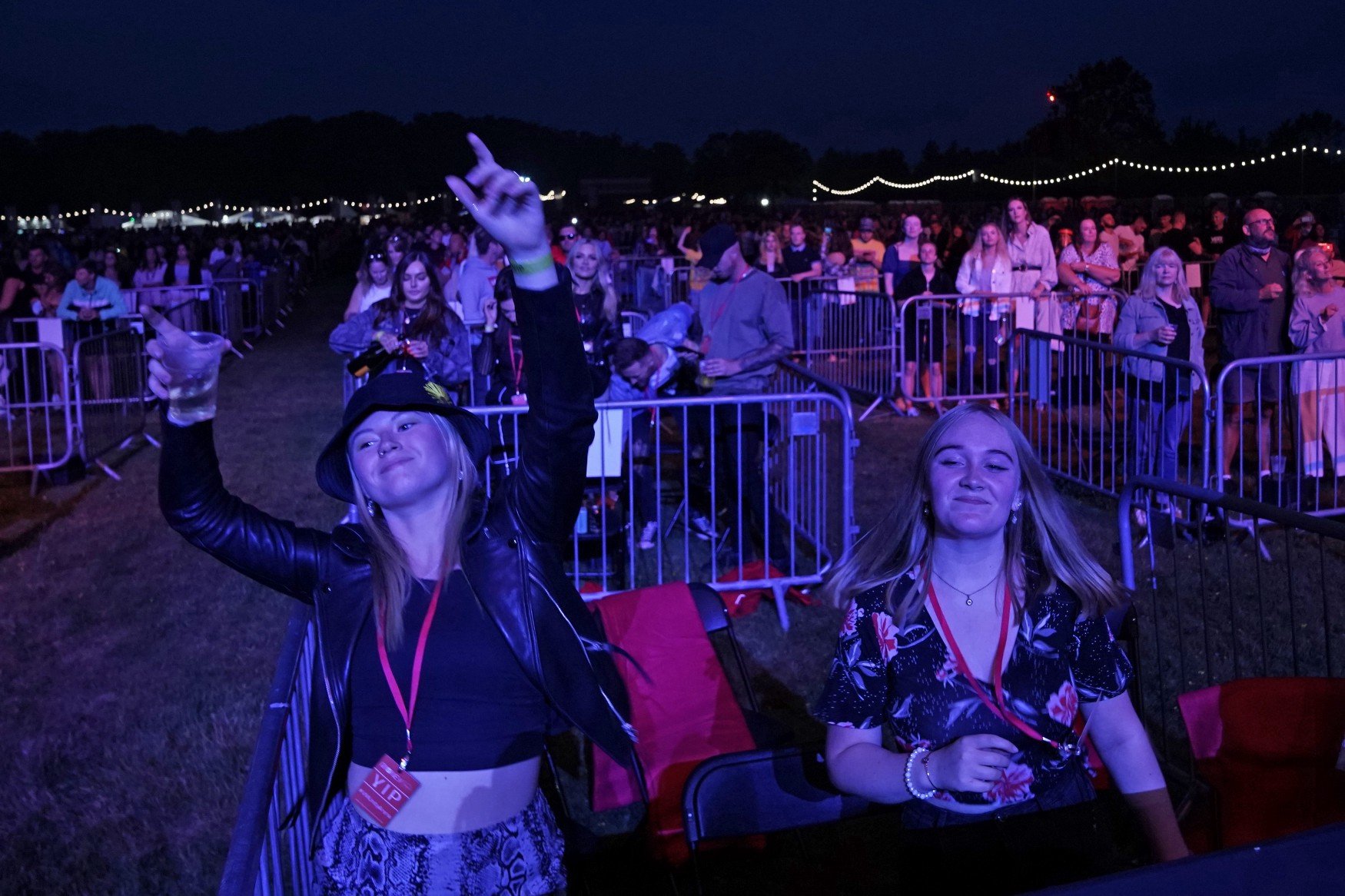Innovation is bringing fans closer to the music
Performance formats were already evolving pre-COVID. Now, there has been a further explosion of creative formats as the music industry grapples with the restrictions the pandemic has thrown at it.
From physical events that adhere to social distancing to virtual events that transcend what is possible in the real world, the way fans connect with their idols and music is being reimagined.
Photo by Pien Muller on Unsplash
Physical events
Physically gathering with tens of thousands of people to enjoy live music feels like a distant memory. But the Virgin Money Unity Arena — a venue that popped up in the UK in August 2020 — utilised eased restrictions to provide the UK’s first socially distanced concert for 2,500 people.
Households of five were given their own platformed viewing areas. Each platform was spaced two metres apart from the next so the audience could safely watch artists and comedians including Sam Fender, Van Morrison, Jimmy Carr, and Bill Bailey.
Ged Bell of Newcastle city council hailed it as “a brilliant innovation where people will be able to enjoy top bands in a safe, responsible and socially distanced way”
PA Images
Across the pond in the United States, Keith Urban and DJ D-Nice are among the first major artists to perform drive-in shows, where people drive to a venue and stay in their cars for the performance.
You’d think this might negatively impact the energy from the crowd, but D-Nice said: “Usually if I’m performing at a club or an event, you feel the energy from people,” he said. “I figured it out by people blowing on their horns. Once I had the call and response like, ‘if you’re feeling good, blow your horns!’ And the moment that I felt that and it was loud, that was it. It just felt like a regular set to me.”
Hybrid events
Miro Shot is a traditional band in the sense that they write songs and play gigs, but they also feature coders and developers and play virtual concerts and hybrid shows. For years, Miro Shot has been experimenting with technology and music.
In 2017, the band premiered a VR show at the Centre for Contemporary Art in Amsterdam. A small group of people at a time took their seats as the musicians stood ready to perform, but instead of watching the band, the audience was helped into VR headsets and experienced an eight-minute virtual performance. The band became graphic versions of themselves and the audience ‘flew’ over an empty landscape as electric fans wafted fragrances over them.
Grammy-winning R&B-pop artist The Weeknd held an augmented reality concert on video-sharing social network platform TikTok drawing over two million views and raising $350,000 for Equal Justice Initiative. The event recorded 275,00 concurrent viewers at its peak which set a new TikTok record. Created with Wave, The Weeknd Experience entertained fans with state-of-the-art visuals and an immersive presentation of The Weeknd’s music.
Appearing in digital avatar form, The Weeknd played hits like the TikTok-trending “Blinding Lights”, and interacted with comments from fans viewing at home. During pivotal moments of the broadcast, fans voted in the comments to guide the visual theme of the experience.
Credit: TikTok
Concerts in games
Many are heralding Travis Scott’s performance, Astronomical, in the video game Fortnite as the live music event of 2020. Unaffected by the global lockdown, the US rapper performed a live set inside the online shooter in April 2020. Fortnite developer Epic Games says over 27.7 million players participated in the in-game event live. In total, the event was attended 45.8 million times, meaning that many players attended at least twice.
American Rapper Lil Nas X also pulled in 33 million views when he held a concert in online gaming platform Roblox across two days. The shows starred a larger than life, motion-captured Lil Nas X, who is the first major artist to use the platform for a fully virtual concert.
These performances accelerate a trend that we’ve been seeing for years: games being a virtual hangout spot. Hosting music concerts and other events in these games gives players even more reasons to spend time together and share experiences.
Jon Vlassopulos, Roblox’s head of music, told The Verge “Maybe when we were in high school, you’d go to the mall or basketball court. I have an eight and a 10-year-old. They meet at a game on the [Roblox] platform.”
Events in virtual reality
The term ‘virtual concert’ is often used in a misleading way. A virtual concert is an event in virtual reality (VR). It is live, interactive, and social or multiplayer. It’s not a live-streamed performance, a recorded music video, or a pre-recorded music event.
Electronic music pioneer Jean-Michel Jarre teamed up with French startup VRrOOm to see in 2021 with a New Year livestream in social VR app VRChat. The show was set in the virtual environment of the Notre-Dame in Paris and was available via VR and live streaming platforms.
Named “Welcome To The Other Side”, the event was an invitation to enter the other side of the mirror and to travel from the physical concert world into a virtual fantasy world.
Companies offering virtual music experiences are popping up all the time. Some of the more well-known ones include Wave, MelodyVR, and NoysVR. All have slightly different offerings and positioning, but all essentially enable fans to consume music and connect with artists in an immersive and engaging way.
The pandemic has accelerated the growth of these platforms, for example, MelodyVR has had a 1000% increase in app downloads since the start of the pandemic, but there is still a long way to go with the technology.
It’s uncertain how quickly, if ever, we will return to live music performances in the same way as before the pandemic. However, immersive technology will continue to empower artists, venues, and fans to experience music like never before, whether that be physical, from a distance, or somewhere in between.



